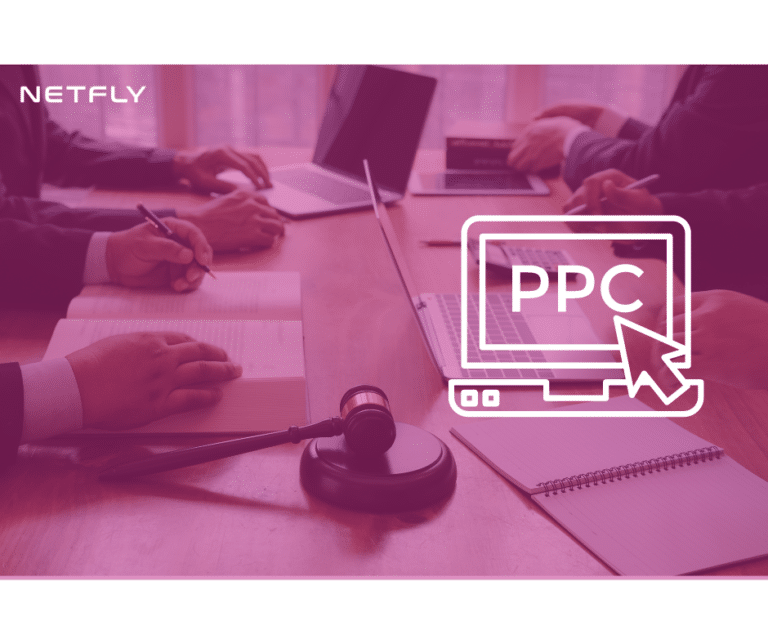Introduction to Law Firm SEO
Law firm SEO is a comprehensive strategy that comprises improving multiple website components to raise a law firm’s placement on search engine results pages (SERPs). Law firms can improve their online exposure, generate organic traffic, and eventually attract more qualified leads and clients by carefully employing law firm SEO tactics such as strategically targeting relevant keywords, producing high-quality content, optimizing website structure, and more.
However, because of the specific issues and competitiveness the legal sector presents, understanding the complexities of law firm SEO can be difficult. To achieve the best results, it is essential to comprehend the core concepts of law firm SEO and to adapt them to the unique requirements of law firms.
Fundamentals of SEO for Law Firms
Any effective internet marketing plan for law firms must start with search engine optimization (SEO). By comprehending and applying the foundations of law firm SEO, you may raise the exposure of your website, draw in more relevant visitors, and eventually expand your clientele.
A. Key Elements of On-Page Optimization
To increase your law firm’s exposure in search engine results and to improve the general user experience on your website, on-page optimization is essential. You may successfully optimize your web pages for search engines and give your users useful content by concentrating on the following essential on-page SEO components:
Title Tags: Create distinct and evocative title tags for every page of your website. To improve search queries, place pertinent keywords at the beginning of the title tag. To guarantee effective presentation in search results, keep the title tags short—typically under 60 characters.
Meta Description: Convey the substance of each page succinctly and effectively in your meta descriptions. Despite the fact that meta descriptions don’t directly affect rankings, they operate as a quick preview of your website in search results, which affects click-through rates. To encourage users to visit your website, select pertinent keywords.
URL Structure: Make clear, user-friendly URLs that accurately reflect the organization and content of your website’s pages. Use hyphens to separate words when you incorporate relevant keywords into the URLs. Search engines appreciate URLs that are brief and descriptive since they are simpler for users to remember and share.
Heading Tags: Utilize heading tags (H1, H2, H3, etc.) to arrange and organize your information. Use the H1 tag for the page’s primary heading and add pertinent keywords. To help users and search engines comprehend the structure of the page, use subheadings (H2, H3) to segment material.
Keyword Optimization: Include pertinent keywords naturally in headings, paragraphs, and bullet points throughout your text. Avoid keyword stuffing, which search engines may punish. Put your energy into creating relevant content that meets user needs. Use keyword
Content Optimization: Make educational, interesting content of the highest caliber. Ensure your target audience’s wants and concerns are addressed in your material. Use language that is clear and concise, include pertinent keywords, and give detailed information about the subject at hand.
Internal Linking: Connected pages on your website to improve navigation and provide search engines with more context. Employ keyword-rich anchor language when creating internal links that point readers to specific pages on your website. Internal linking improves how well search engines find and index your material.
Image Optimization: Reduce file sizes for photographs on your website without sacrificing quality. Images should be compressed, file names should be informative, and proper alt tags should be added. Image optimization speeds up website load time and aids in search engines’ comprehension of image material.
B. Keyword Research and Analysis
A great law firm’s SEO strategy is built upon keyword research and analysis. You may determine the precise search terms and phrases that potential clients are using to look for legal services by conducting detailed keyword research. Using this information, you may select pertinent keywords for your website and tweak its content to increase its visibility in search engine results.
You can gain useful insights into the search habits of your potential customers and choose the ideal terms to target by utilizing the many free keyword research tools accessible. Here is how to use some well-known free keyword research tools:
Google Keyword Planner: Google Keyword Planner is a free tool offered by Google Ads. It is great for finding relevant keywords for organic keyword research and also aids advertisers in finding keywords for their ad campaigns. A Google Ads account must first be created, which is free to do. When you enter your seed keywords or the practice areas of your law firm, the tool will offer keyword ideas as well as data on search volume.
Ubersuggest: a complete keyword research tool that provides a free version with bare-bones functionality. It offers keyword recommendations, information on search volume, and keyword difficulty ratings. Ubersuggest also provides data on the top sites for each keyword, which aids in your analysis of the opposition. The tool’s user-friendly layout makes it a perfect choice for new users and those looking for fundamental keyword information.
SEMrush: A limited amount of searches are permitted each day in the free edition of SEMrush. The comprehensive keyword analysis offered by this potent tool includes search traffic, keyword difficulty, competitive information, and related keywords. It also provides information on the top organic and paid keywords used by your rivals, enabling you to spot possible possibilities and adjust your keyword strategy accordingly.
By employing these free keyword research tools, you may compile a large number of keyword recommendations, evaluate their potential, and determine which terms are the most pertinent and worthwhile for the law firm SEO efforts of your law practice. Keep in mind that keyword research is a continuous activity, and you should periodically assess and alter your keyword strategy in light of changes to your practice areas and search trends.
In the cutthroat world of law firm SEO, using these tools in conjunction with a careful examination of search intent will help you optimize the content on your website, draw in niche audiences, and improve your online exposure.










